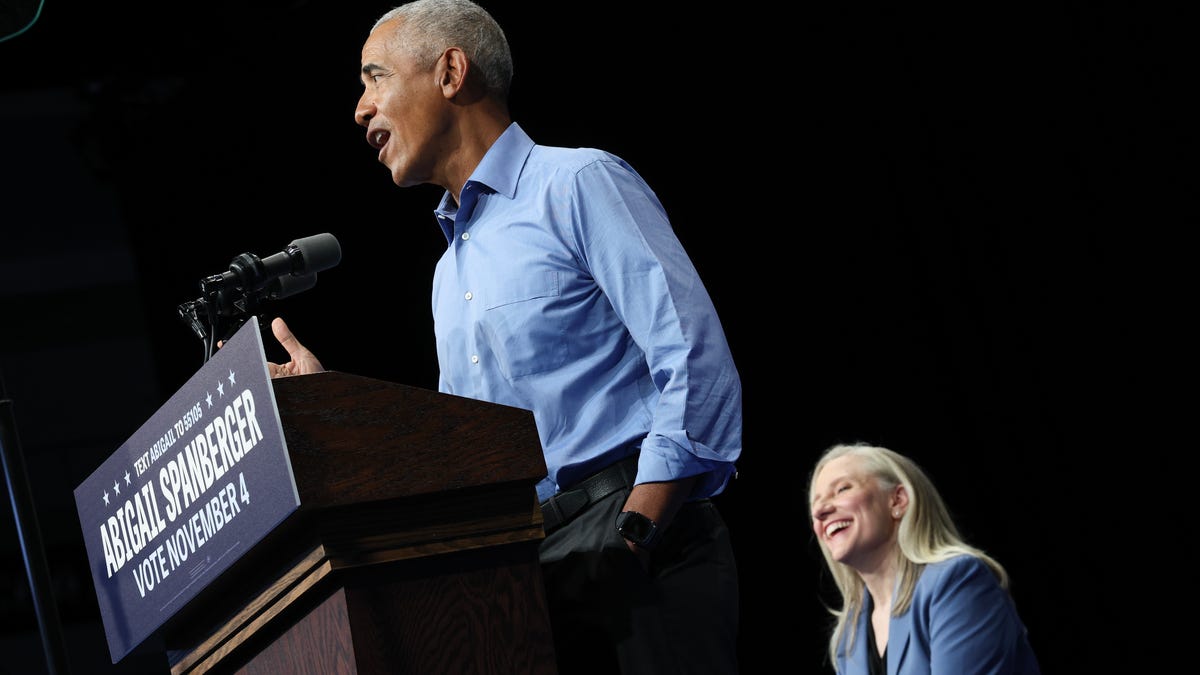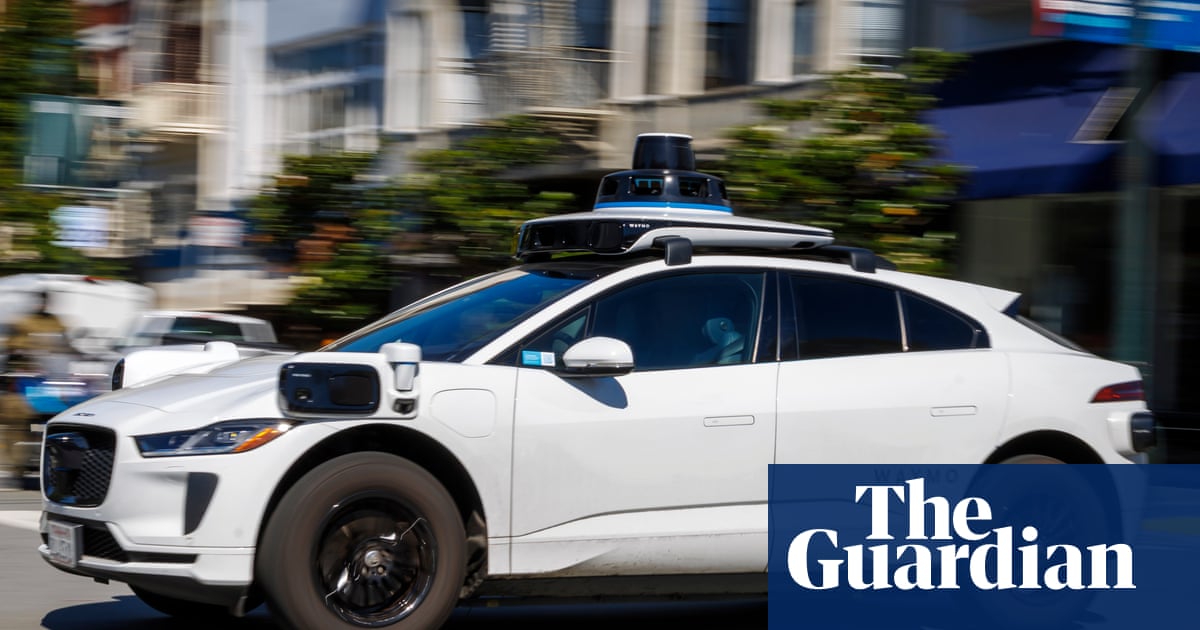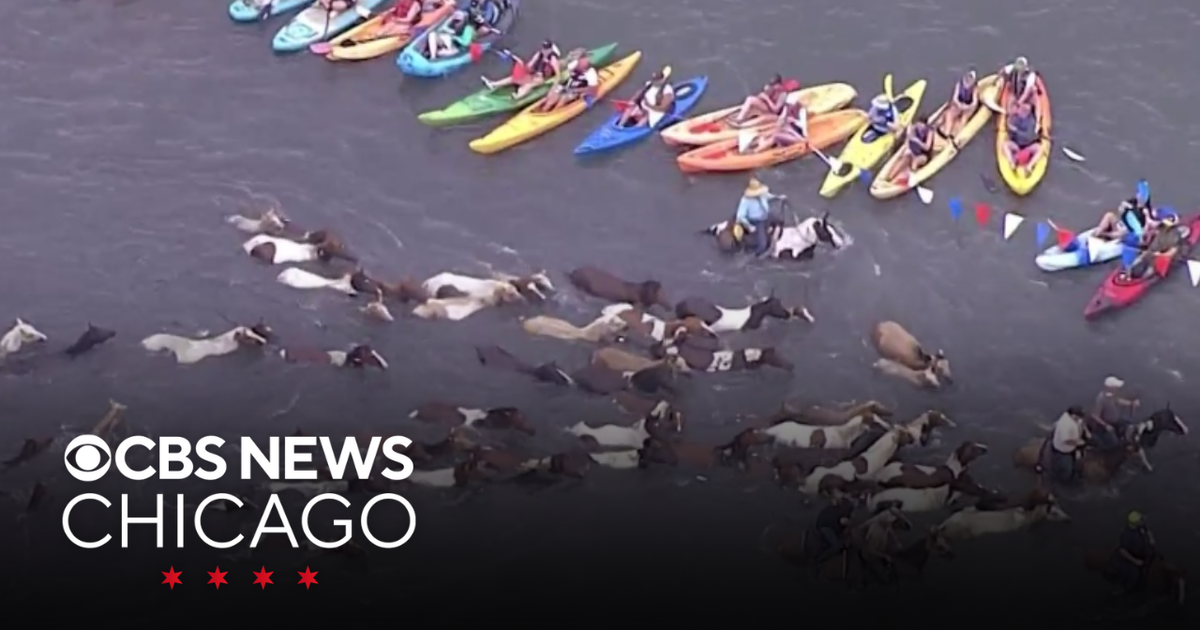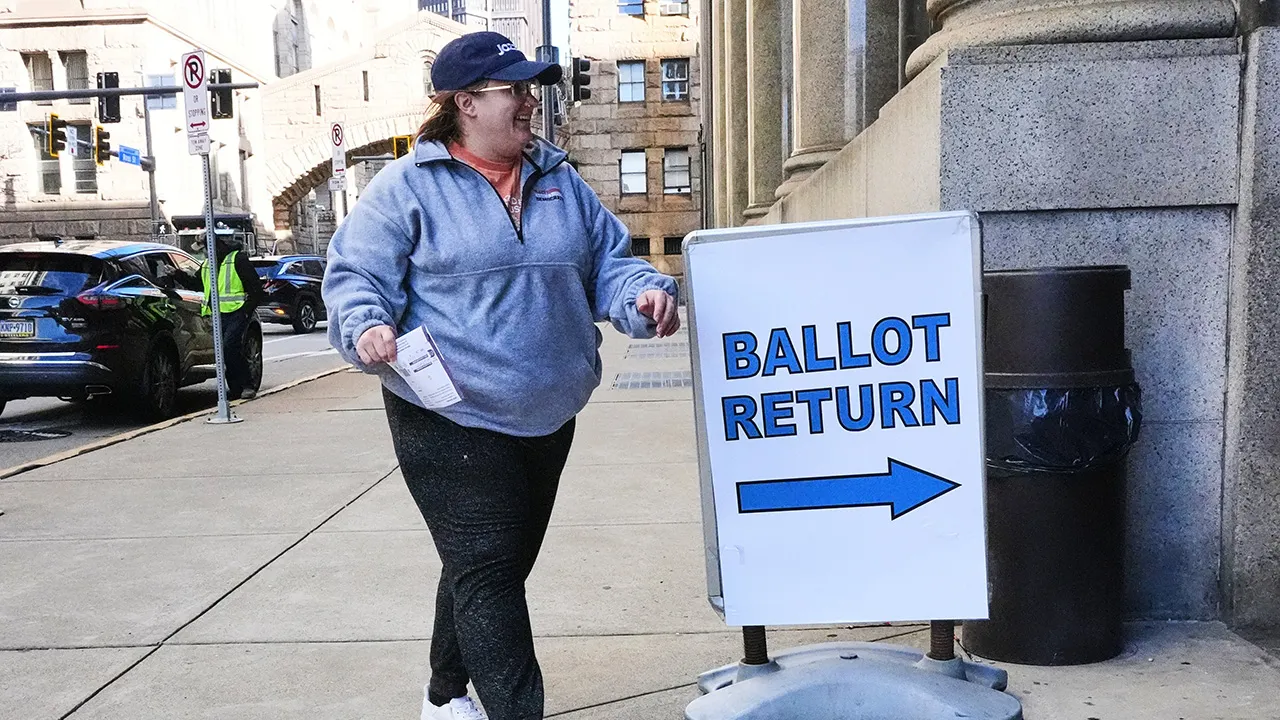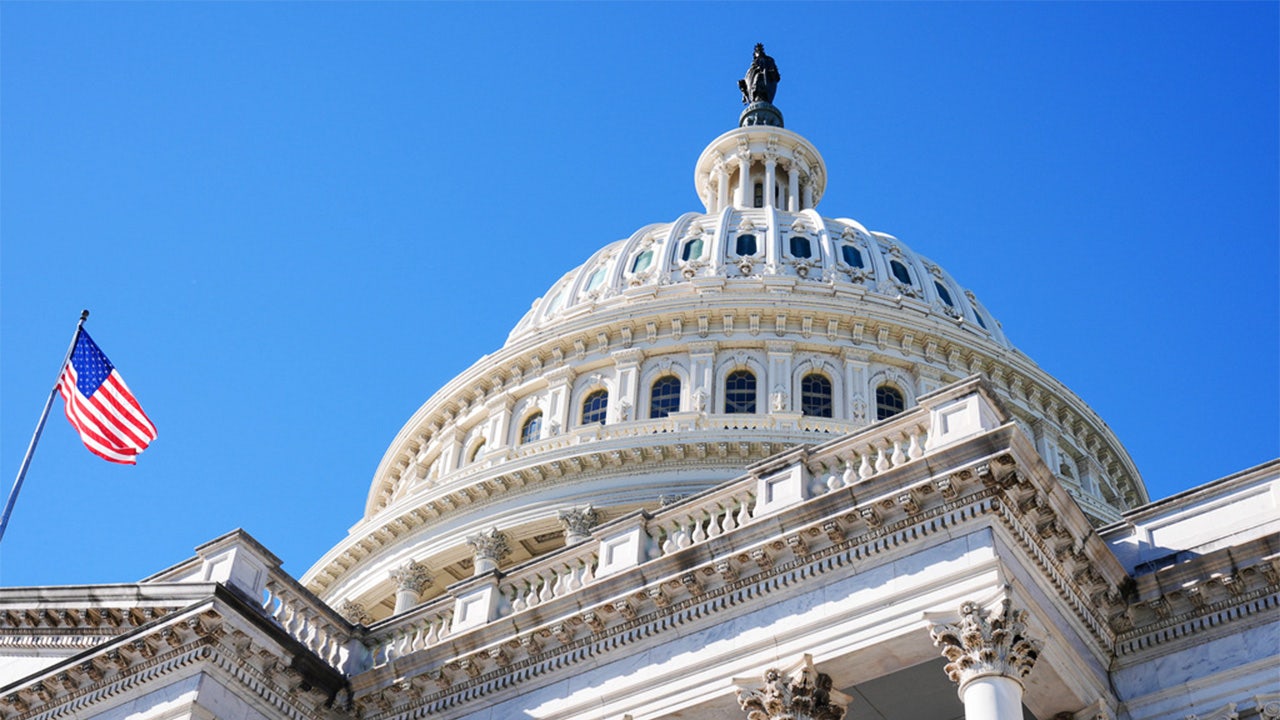Business
Law Firms Jenner & Block and WilmerHale Sue Trump Administration to Block Executive Orders

The nation’s legal profession is being split between those that want to fight back against President Trump’s attacks on the industry and those that prefer to engage in the art of the deal.
Two big firms sued the Trump administration on Friday, seeking to stop executive orders that could impair their ability to represent clients. The lawsuits filed by Jenner & Block and WilmerHale highlight how some elite firms are willing to fight Mr. Trump’s campaign targeting those he doesn’t like, while others, like Paul Weiss and Skadden, have cut deals to appease the president.
In recent weeks, Mr. Trump has issued similarly styled executive orders against firms that he perceives as enemies and threats to national security. The orders could create an existential crisis for firms because they would strip lawyers of security clearances, bar them from entering federal buildings and discourage federal officials from interacting with the firms.
“I am heartened by the fact that Jenner and Wilmer are joining Perkins in pushing back on these illegal executive orders. It shows that capitulation is not the only route,” said Matthew Diller, a law professor and former dean of Fordham University School of Law. “In the long run, it will strengthen their reputations in the market as forceful advocates who stand up for principle, a quality that many clients will value.”
Jenner & Block said in a statement that its suit was intended to “stop an unconstitutional executive order that has already been declared unlawful by a federal court.” A third firm, Perkins Coie, has also sued the Trump administration over the same matter, and had some early success in stopping the executive order.
Jenner & Block also created a website — Jenner Stands Firm — to publicize its filing and to highlight newspaper editorials criticizing the executive orders and comments from law school professors questioning the legality of Mr. Trump’s actions.
On Friday evening, Judge John Bates of Federal District Court in Washington issued a temporary restraining order that bars the Trump administration from punishing Jenner & Block. The judge called the portion of the executive order that criticizes the pro bono legal work the firm does for organizations “disturbing” and “troubling.”
Later Friday, another federal judge in Washington, Richard Leon, issued a temporary restraining order granting WilmerHale most of the relief the firm sought from the executive order against it.
The effort to fight back in a public manner stands in contrast with the way other firms have handled Mr. Trump’s campaign against them.
Also on Friday, Mr. Trump told reporters that the White House had reached a deal with Skadden, Arps, Slate, Meagher & Flom that would require the firm to provide $100 million in pro bono legal services to causes he supports. Skadden and Mr. Trump reached a deal after the law firm had reached out behind the scenes to head off the filing of an executive order against it.
“We very much appreciate their coming to the table,” Mr. Trump said.
In a statement, Skadden said, “We engaged proactively with the president and his team in working together constructively to reach this agreement.” The firm added that the agreement “is in the best interests of our clients, our people and our firm.”
Last week, Paul, Weiss, Rifkind, Wharton & Garrison announced an agreement in which Mr. Trump rescinded his executive order against the law firm in exchange for its committing to represent clients regardless of their political leanings and pledging $40 million in pro bono legal services to issues Mr. Trump has championed.
Paul Weiss reached its deal within days of Mr. Trump’s executive order after the firm’s chairman, Brad Karp, flew from New York for an Oval Office meeting with the president and some of his staff. Mr. Karp said in an email to the firm that he had moved quickly because Paul Weiss’s big corporate clients were threatened with the “loss of their government contracts and the loss of access to the government” if they stuck with the firm.
Mr. Karp cast the deal as a move to save Paul Weiss, which employs about 2,000 people. He also complained that other law firms had not come out to support Paul Weiss.
But that deal was widely criticized. The firm — which is stocked with Democrats who have opposed Mr. Trump — was seen as bending to the president to protect its bottom line.
“A large part of this are business decisions being made by law firms,” said Rebecca Roiphe, a former prosecutor and a professor at New York Law School who specializes in legal ethics. “These firms are calculating that their clients will feel aligned with their decisions.”
Mr. Trump has been going after big law firms that he contends have “weaponized” the legal system. He is initially targeting law firms that hired lawyers who were once involved in the many investigations of his actions during his first presidential term and his business dealings.
The executive orders have been premised on Mr. Trump’s notion that the law firms’ partisan representations and pro bono work for groups that he disagrees with could pose a threat to national security.
A White House spokesman, Harrison Fields, said in a statement: “Democrats and their law firms weaponized the legal process to try to punish and jail their political opponents. The president’s executive orders are lawful directives to ensure that the president’s agenda is implemented and that law firms comply with the law.”
The suit by Jenner & Block was filed in federal court in Washington, and the firm is asking a judge to step in immediately and stop the executive order, which was leveled against it by Mr. Trump this week. The firm is being represented by Cooley, another law firm. The lawsuit named numerous government agencies and officials as defendants.
WilmerHale filed its lawsuit in the same federal court and is being represented by Paul Clement, a solicitor general during the administration of President George W. Bush.
Jenner & Block and WilmerHale represent some of the nation’s biggest companies, and often deal with regulatory issues before government agencies. Jenner & Block has represented the defense contractor General Dynamics, as well as the entertainment giant Viacom, while one of WilmerHale’s major clients is JPMorgan Chase.
The executive order accused the firm of engaging “in obvious partisan representations to achieve political ends” and claimed the firm “discriminates against its employees based on race and other categories prohibited by civil rights laws, including through the use of race-based ‘targets.’”
The executive orders against both Jenner & Block and WilmerHale focused, in large part, on the work of lawyers with the federal investigation into ties between Mr. Trump’s 2016 presidential campaign and Russia. The investigation was led by a special counsel, Robert S. Mueller III, a former director of the F.B.I. who was a partner at WilmerHale.
One of Mr. Mueller’s top assistants on that investigation was Andrew Weissmann, a longtime federal prosecutor and former partner at Jenner & Block.
Both Mr. Mueller and Mr. Weissmann rejoined their firms after the investigation was completed. The lawyers left their firms in 2021. But on the WilmerHale website, there is a page devoted to a lengthy interview with Mr. Mueller, who is normally media-averse, in which he discusses his “remarkable life and career.”
Jenner & Block’s complaint said Mr. Trump’s action was unconstitutional and would compromise the ability of the firm’s more than 500 lawyers to “zealously advocate for its clients.”
The lawsuit noted that Mr. Trump’s deal with Paul Weiss did not include any new security measures imposed on that firm.
In a statement, WilmerHale, which has about 1,000 lawyers, said the president’s executive order “is a plainly unlawful attack on the bedrock principles of our nation’s legal system — our clients’ right to counsel and the First Amendment.”
Perkins Coie, one of the first law firms targeted by Mr. Trump, sued him earlier this month. A federal judge temporarily halted Mr. Trump’s order, saying it was likely illegal and adding: “It sends little chills down my spine.”
Vanita Gupta, a civil rights lawyer and former senior Justice Department official in the Biden and Obama administrations, said the new lawsuits were necessary in a time of peril for the legal profession.
“The only way through this attack on the very foundations of our legal system is by fighting back,” Ms. Gupta said. “If firms want to be trusted to fight the biggest fights, they must not cave to blatantly unconstitutional government actions.”
She praised the three firms that are fighting the administration and said she hoped others would do the same because “collective action is the only way to pull through in this moment.”
Mr. Trump’s executive order against Paul Weiss was motivated in part by the fact that a former partner at that firm has worked with the Manhattan district attorney’s office in trying to build a criminal case against Mr. Trump after he lost the 2020 election.
One pattern of the executive orders is going after law firms that have employed attorneys whom Mr. Trump’s sees as his personal enemies. One of those is Mr. Weissmann, whom Mr. Trump has often lashed out against on his social media platform, Truth Social.
Mr. Weissmann has a reputation as an aggressive investigator. In recent years, he has emerged as a public critic of Mr. Trump, appearing frequently on MSNBC to provide legal analysis about the range of indictments Mr. Trump faced for his conduct.
In the complaint, the firm said Mr. Weissmann had not worked for it since 2021. It also noted that it has had prominent lawyers from all political parties on its staff.
Tyler Pager contributed reporting.

Business
Duane Roberts, frozen-burrito magnate and Mission Inn owner, dies at 88

Duane Roberts made millions off a food he was initially wholly ignorant of: the humble burrito.
It was the 1950s, and his family owned a small meat wholesaler called the Butcher Boy that sold patties to local restaurants, including one of the first operating McDonald’s, a location in San Bernardino.
As the fast-food chain and other burger joints grew in popularity, the family brainstormed other products they could manufacture, Roberts recalled in a 2007 interview with the Orange County Register.
A butcher who worked at the company, whom Roberts described as having Hispanic heritage, made a suggestion: “Why don’t you make a burrito?”
“I loved Mexican food, but I had no idea what a burrito was,” Roberts told the Register, saying he was more familiar with enchiladas and tacos.
But the entrepreneurial Roberts went on to turn that seed of an idea into a bean and beef burrito that could be sold frozen and then deep-fried.
Roberts, who would parlay his business success into a prominent role in Inland Empire Republican politics and attain local fame as owner of the historic Mission Inn, died Saturday, according to his family. He was 88.
The story goes that the Riverside businessman experimented in the kitchen for two days straight to get the burrito right. Its sales helped expand the family business from one plant with 60 workers to six plants with 1,400 workers.
Roberts made millions off the product when he sold the company to Central Soya Inc. in 1980. At the time, the company was generating $80 million in annual sales and producing 1 million burritos each day.
His wife, Kelly J. Roberts, said in a statement that her husband was a “visionary entrepreneur, devoted husband, and a man whose heart and generosity forever shaped [their] family and community.” She said he died peacefully in his sleep.
She described Roberts as a “proud American” who served in the United States military and was a “staunch supporter” of the Republican Party.
“[H]e believed passionately in the principles of hard work, perseverance and opportunity, values that guided both his business ventures and his life,” she said.
Roberts hosted a reelection fundraiser for then-President George W. Bush in 2003, and his wife was President Trump’s pick for ambassador to Slovenia during Trump’s first term — although she later pulled herself out of the running, Politico reported.
The businessman, who grew up in Riverside, is also known for saving the historic Mission Inn from the brink of demolition.
The hotel — which hosted both the marriage of the Nixons and the honeymoon of the Reagans — closed for a major overhaul in 1985, but the renovation dragged on, and then the hotel market collapsed. Roberts swept in offering $15.6 million, a steal when compared with the $55 million spent on the renovation, financed by Chemical Bank.
The bank acquiesced, however, fearing more losses. Roberts reopened the Mission Inn in 1992.
“How the Mission Inn was saved is the happy tale of a city’s heart restarted,” former Times reporter Daniel Akst wrote after its reopening. “But it’s also an object lesson in what you can do if you’re solvent — and clever — during the worst recession in Southern California since the 1930s.”
Roberts had a sentimental attachment to the hotel, as his meat company had sometimes entertained clients there. His mother also loved the ornate architecture.
“I like beautiful old things. The Mission Inn is the fabric that binds the community together. It’s a heart-welling thing to own. Some people have sports teams, I have my Mission Inn,” he told the Register in 2007.
Roberts and his wife have been longtime residents of Laguna Beach, but earlier this year they purchased a $48.5-million Palm Beach estate, the latest example of wealthy Californians and Trump fans flocking to Florida.
He is survived by his wife and his stepchildren Doug and Casey.
Business
Comedy Central extends Jon Stewart’s ‘The Daily Show’ run through 2026

Jon Stewart’s biting satire may have made his new bosses squirm, but they went ahead and extended the comedian’s run on Comedy Central through December 2026.
The channel’s parent company, Paramount, announced Monday that Stewart will continue to host “The Daily Show” on Monday nights and serve as an executive producer through the end of next year.
Members of the show’s news team will continue to share Tuesday-through-Thursday hosting duties. Terms of the contract were not disclosed.
“Jon Stewart continues to elevate the genre he created. His return is an ongoing commitment to the incisive comedy and sharp commentary that define The Daily Show,” Ari Pearce, Comedy Central’s manager, said in a prepared statement. “We’re proud to support Jon and the extraordinary news team.”
Stewart’s contract was re-upped nearly four months after Paramount-owned sister network CBS notified Stephen Colbert, who rose to fame on “The Daily Show,” that it was dumping his late night show at the end of the season. The cancellation was revealed days after Colbert lambasted a $16-million settlement Paramount agreed to pay President Trump to end a lawsuit over edits to “60 Minutes.” Colbert called the arrangement “a big fat bribe.”
Paramount settled the Trump suit to win approval from the Trump administration of its sale to David Ellison’s Skydance Media and RedBird Capital Partners. CBS has said the reason for Colbert’s cancellation was financial, not political, although many people have expressed doubts.
Ellison took ownership of Paramount in August. Stewart has joked that he, too, might be tossed as the company tries to reposition itself to the political center.
Since taking over the media firm that also includes MTV, BET, Nickelodeon and Hollywood-based Paramount Pictures movie studio, the company has made big bets, including agreeing to pay $7.7 billion for rights to UFC fights and $1.25 billion over five years to Matt Stone and Trey Parker to continue creating their “South Park” cartoon for Comedy Central and the Paramount+ streaming service. Ellison and his team also lured Matt and Ross Duffer, the duo behind “Stranger Things,” from Netflix and paid $150 million to buy the Free Press and bring its co-founder, Bari Weiss, to the company as CBS News editor in chief.
Paramount also signed a 10-year lease on a film and television production facility under construction in New Jersey.
Last week, the company began a deep round of layoffs, cutting 1,000 employees with plans to terminate another 1,000 in the coming weeks, in an effort to trim its workforce by 10%. About 100 people from CBS News were among the layoffs.
After a nine-year absence, Stewart returned as a host in February 2024. He had helmed the show for 16 years before taking a break in 2015. His current contract was expiring.
The show was hosted by Trevor Noah until 2022, when he stepped down. That prompted a rotation of guest hosts, including Kal Penn, Charlamagne tha God, Sarah Silverman and Michelle Wolf.
Last month, during a conversation with the New Yorker at a cultural festival, Stewart was asked whether he might stick around longer. “We’re working on staying,” Stewart told the New Yorker’s David Remnick.
The rotation of “The Daily Show” hosts also will include Ronny Chieng, Josh Johnson, Jordan Klepper, Michael Kosta and Desi Lydic with Troy Iwata and Grace Kuhlenschmidt.
Business
Waymo killed KitKat. California neighborhood mourns a corner-store cat

San Francisco has been mourning the death of KitKat, a beloved corner-store cat who died after being struck by a Waymo robotaxi last week.
KitKat graced the counters of Randa’s Market on 16th Street, near the historic Roxie Theater in the Mission District. KitKat was first introduced on the store’s Instagram page six years ago, quickly winning over the hearts of customers. He wasn’t a surly or suspicious cat — he could be seen playing with someone’s dangling hoodie drawstrings; snoozing in front of shelves with liquor bottles; inside a cardboard box marked with his name; greeting the neighborhood dogs; even dressing up as Santa Claus.
He shot to fame during the COVID-19 pandemic’s first year. Not only was he posted on the @bodegacatsofinstagram account (which now has more than 500,000 followers), but he also won a mention in a news story on beloved store cats. “The atmosphere in the store definitely changed after KitKat arrived,” Daniel Zeidan, the store owner’s son, told SFGate. Not only did he get treats from customers, but also “someone recently brought him a blanket so he would stay warm in the winter.”
More recently, he was caught curled up asleep on his own heating pad.
He even made appearances in the next-door bar, Dalva, where his arrival felt like “the president had arrived, making their rounds, shaking hands and charming everyone,” said one mourning Instagram commenter.
But he was fatally wounded around 11:40 p.m. on Oct. 27 just outside the market, Mission Local reported. Two witnesses, speaking anonymously, told the news outlet that they had just left Dalva and saw KitKat sitting in front of a stopped self-driving Waymo for about seven seconds. Then the cat walked under the vehicle, heading toward the sidewalk, as the car pulled away. The right rear tire ran over KitKat, the website said.
“It was an awful sight,” one of the witnesses told Mission Local.
Another person driving by saw the Waymo swerve and told Mission Local he thought the robotaxi was driving faster than he would expect a human would drive on a busy street. “Killed the neighborhoods baby,” a comment on the city’s 311 website said shortly after the collision.
A bartender from another nearby bar, Delirium, rushed KitKat to a veterinarian hospital, where he was pronounced dead, according to Mission Local.
The cat was 9 years old, the San Francisco Standard reported.
“We’re heartbroken,” Randa’s Market said on Instagram. “He brought warmth, smiles, and comfort to everyone who walked through our doors…. The store won’t be the same without his little paws padding around.”
KitKat was a beloved presence along 16th Street in San Francisco.
(Randa’s Market)
One mourner, responding to the post, called KitKat “the best city bodega cat anyone could ever ask for. His lil pet requests meant a lot for some of us passing through, whether we missed our own pet or just wanted to share some love with a neighbor.”
In a statement, Waymo said: “We reviewed this, and while our vehicle was stopped to pick up passengers, a nearby cat darted under our vehicle as it was pulling away.
“We send our deepest sympathies to the cat’s owner and the community who knew and loved him, and we will be making a donation to a local animal rights organization in his honor,” the statement said. “The trust and safety of the communities we serve is our highest priority.”
A Waymo has had a run-in with a pet before. News outlets in 2023 reported on a Waymo striking and killing a small off-leash dog in San Francisco’s Bayview-Hunters Point neighborhood; in that case, a test driver was in the vehicle, but the car was in self-driving mode.
In one close call, a Waymo narrowly avoided running over a runaway dog in Santa Monica in May. An 8-year-old Labrador mix, Trevor, had escaped his owner’s yard and ran into the street in front of a Waymo, which braked suddenly, KCAL-TV reported. The station broadcast video of the near-collision. The dog was uninjured, and his owner praised the car’s quick action.
The California Department of Motor Vehicles has received reports of 884 collisions involving autonomous vehicles dating to 2014.

A Waymo robotaxi in downtown Los Angeles in September.
(Gary Coronado/For The Times)
Waymo, owned by Google’s parent, Alphabet, has been expanding its footprint across California. The robotaxis — electric Jaguar I-Paces — don’t use a human driver and can be hailed on an app in San Francisco and a swath of northern San Mateo County, including Daly City, San Bruno and Burlingame. They’re also available in parts of Silicon Valley and surrounding areas, including Mountain View, Los Altos, Palo Alto and Menlo Park.
In Los Angeles County, Waymos can be hailed across a portion of central L.A., South L.A., and the Westside, including downtown L.A., Santa Monica, Beverly Hills, West Hollywood and Inglewood.
The self-driving cars are also available in Phoenix.
-
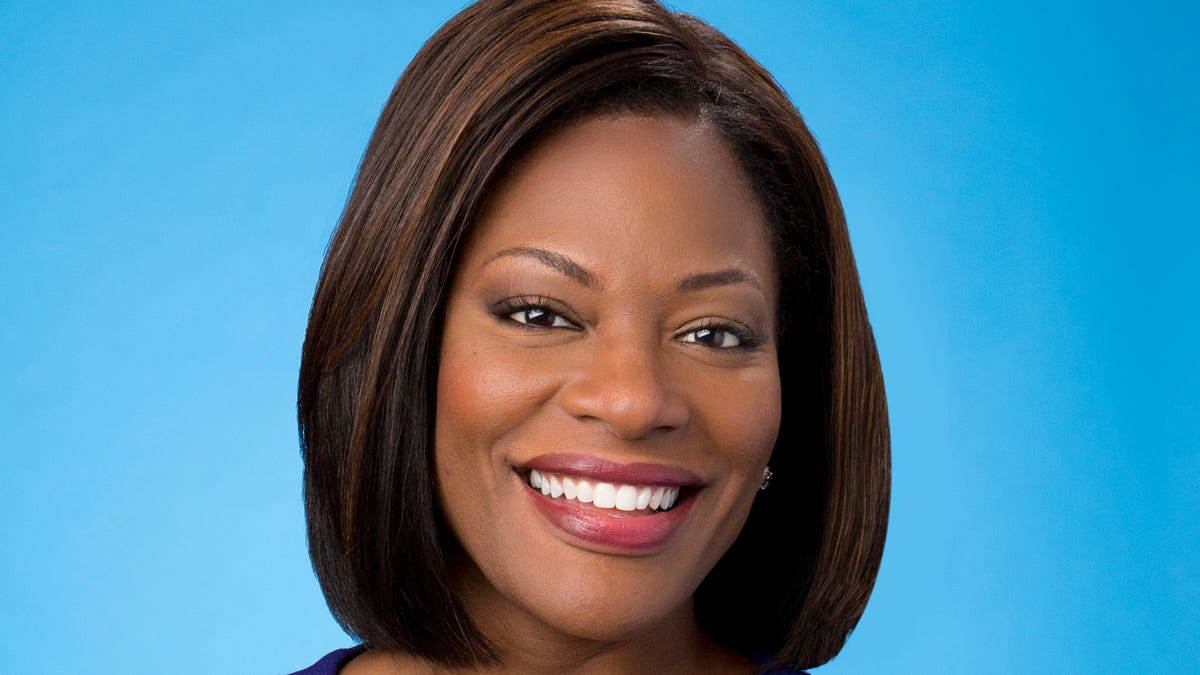
 Milwaukee, WI1 week ago
Milwaukee, WI1 week agoLongtime anchor Shannon Sims is leaving Milwaukee’s WTMJ-TV (Channel 4)
-

 News1 week ago
News1 week agoWith food stamps set to dry up Nov. 1, SNAP recipients say they fear what’s next
-

 Alabama1 week ago
Alabama1 week agoHow did former Alabama basketball star Mark Sears do in NBA debut with Milwaukee Bucks?
-

 Culture1 week ago
Culture1 week agoVideo: Tyler Mitchell Breaks Down Three Photos From His New Book
-

 Culture7 days ago
Culture7 days agoVideo: Dissecting Three Stephen King Adaptations
-

 Seattle, WA3 days ago
Seattle, WA3 days agoESPN scoop adds another intriguing name to Seahawks chatter before NFL trade deadline
-

 Seattle, WA1 week ago
Seattle, WA1 week agoFOX 13’s Aaron Levine wins back-to-back Jeopardy! episodes
-

 Politics1 week ago
Politics1 week agoPHOTOS: The making of Trump’s White House ballroom, a look at the construction progress


